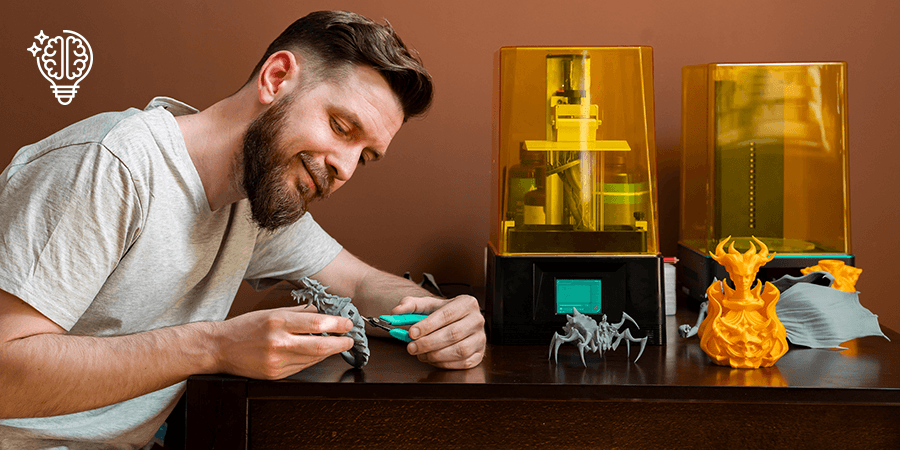
Both resin and filament printers have their pros and cons, all based around what you are needing to print out. They vary in strength, speed, size, quality, ease of use, and limitations.
Resin printers have their pros against filament printers like:
‣ They are much faster than filament based printers, in some cases up to 70% faster
‣ The level of detail is much higher easily being 10X that of filament printers
‣ Set up and first time use is mostly automated with minimal interaction
Making resin printers great for people wanting to print lots of small models for D&D and Warhammer, high detail objects and art models.
Filament printer advantages include:
‣ Larger build areas, can be up to but not limited to 300x300x400mm
‣ Wide range of materials like carbon fibre, nylon, polycarbonate, wood, flexi, ABS, PLA and more
‣ They print stronger parts, making them great for anything functional
‣ Cheap and easy replacement parts
‣ They are cheaper printers to buy, perfect for the first time user
‣ Cheaper materials
This makes filament printers someone's main choice when making large items, high strength parts, car parts, objects that need to meet high stress and heat requirement, robotics, as well art models and busts, flexi items like shoes and belts.
Both of these printers also come with a list of Do's and Do Not's to keep them running and lasting as long as possible.
Resin 3D Printers
Do | Do Not |
Remove resin from vat when not in use | Leave the resin in the vat as it can separate and cure to the bottom FEP |
Stop a print if it fails | Keep the printer running when a print fails, resin will cure to the vat and FEP which can damage it |
Check for cured resin in vat before a print starts | Let the printer print with cured resin, this can damage the FEP, vat and screen |
Use the printer in a well ventilated place | Expose the resin to UV and sunlight, this will cure the resin |
Change the FEP when it deforms | Reuse a deformed FEP, it may break damaging the screen below |
Clean up any resin that gets on the screen | Let resin get on the screen, it will cure and damage the screen |
Fill vat to the fill line | Over filling the vat will cause resin to leak onto the printer and screen which can damage them |
Filament 3D Printers
Do | Do Not |
Clean the bed before you print | Use abrasive material to clean the bed, this will damage most print beds |
Use the correct temp settings for your material | Use the same settings for all materials, this can cause nozzle and motor damage |
Load and unload filament while nozzle is hot | Cold loading and unloading can damage the nozzle and feed motor |
Make sure nothing is in the way of the printer | Debris can cause damage to the bed and XY motors and belts |
Correctly level the bed | Using an unlevel bed can damage the nozzle, XYZ motors and belt as well as the nozzle |
Stop the printer when nozzle clogs | Continuing to print with a clogged nozzle can damage the nozzle and feed motor |
Ensure the nozzle is clean before use | Plastic left stuck to nozzle can cause the print to fail at the start |